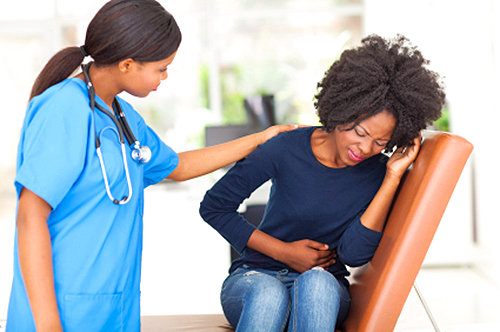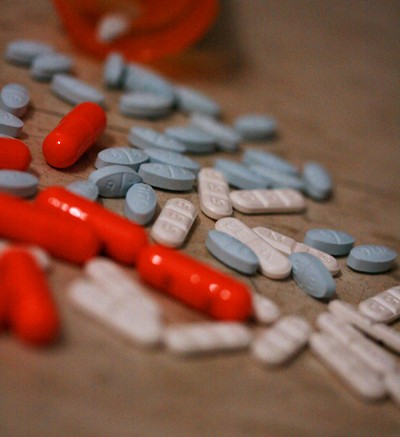Voluntarily terminating an active pregnancy is safe and effective whether carried out with the use of medications or through a surgical procedure, especially when conducted during the early stages of pregnancy. However, as is the case with any medical procedure, there is a minor chance of complications to arise. The majority of the women do not experience any side effects, but some report encountering health impacts that require treatment. One of them is the development of an infection which should be dealt with immediately.
Jennifer Hastings, the Senior Editor at Wushy Mommy, explains that ‘There are certain after-effects associated with abortion. Women should be aware of what is normal and what isn’t so they can get timely medical assistance when needed. Feeling sore and tired after the procedure is normal, and so is bleeding for up to two weeks. The major complication to watch out for is acquiring an infection. Severe abdominal pain, foul-smelling vaginal discharge, or fever are signs that one shouldn’t ignore.’
What Causes Infection?
An infection occurs when microbes, or germs, get into our bodies. Doctors usually prescribe antibiotics when one has to undergo an abortion to avoid any such complications. However, it can occur when the after-care isn’t satisfactory after an abortion, or the abortion was not carried out under sterile conditions. It can also develop in case of an incomplete abortion that hasn’t been detected properly. Any fetal tissue material can result in an infection that would require further treatment. So yes, when a doctor prescribes you antibiotics after abortion, they are necessary to avoid any drastic complications.
Medical or Surgical Abortion – Which Has Lesser Odds?
The process of medical abortion is carried out by the use of a combination of two medications – Mifepristone 200 mg and Misoprostol 200 mcg. It is non-invasive, therefore, has a very low chance of resulting in a complication such as infection.
Surgical abortion has slightly more chances of complications such as infection when the standards of operation are subpar. There are many types of equipment that are used for surgically removing uterine contents. The tools, gloves, hands, etc., may carry germs that get introduced inside the body.
Moreover, many factors may affect the microbial invasion of the reproductive organs after the procedure is finished.
- The presence of Chlamydia and Neisseria gonorrhoeae in the vaginal tract poses a considerable threat for infection.
- In the case of incomplete removal of fetal tissue from the uterus, the remnants may cause infection.
- And, anything that gets inserted into the vaginal tract – tampon, any sex toy, or penis, may introduce bacteria to the body and move it further. This may result in the multiplication of the microbes and the development of infection.
Signs to Watch Out For
It is crucial to know what is unusual so that you can seek medical aid on time and avoid any critical health impact. After an abortion, if you develop any of the below-mentioned symptoms contact your healthcare provider.
- Nausea or vomiting
- Fever above 101 degrees Fahrenheit
- Diarrhea
- Foul-smelling vaginal discharge
- Heavy bleeding
- Severe abdominal pain.
Infections are manageable very efficiently when treatment is started on time. If any infection of the reproductive system isn’t treated adequately it can get more complicated and evolve into Pelvic Inflammatory Disease (PID).

Pelvic Inflammatory Disease
The symptoms of PID are as follow:
- Pain in the abdominal region (moderate to severe)
- Pain during sex
- Bleeding between the periods
- Fever (moderate to high)
- Vomiting & fainting in severe cases.
In case PID is not treated in time, it can give rise to serious issues such as:
- Development of abscesses
- Extreme Abdominal pain
- Damaged fallopian tubes, increasing the risk of ectopic pregnancy
- Issues with conceiving
How Can You Prevent An Infection?
There are simple things you need to take care of to avoid the development of any infection.
- Get screened for any sexually transmitted infections before you go for an abortion.
- Consume the prescribed antibiotics to complete the course as directed by your doctor.
- Use a sanitary pad instead of a tampon.
- Do not involve in penetrative sexual activity for at least a week or till the time your bleeding stops. Sexual activities can introduce microbes to your reproductive organs or nudge the ones already present further.
Treatment Options
Antibiotics are administered for the treatment of most infections. Doctors generally advise doxycycline, azithromycin, and similar medications along with other post-abortal care drugs. In case of an advanced infection such as PID, surgical treatment may suffice to
- Remove abscess fluid, or
- Rectify damaged or blocked fallopian tubes.
To Summarize
Antibiotics are important when prescribed by your doctor after your abortion procedure. They help in the prevention of the growth of microbes that may result in any infection. Prevention is crucial as in some cases the detection of infection may take longer, thus complicating the situation.
